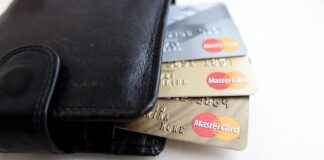This comprehensive guide explores the best options for phone holders that fit into your car’s cup holder, ensuring safety and convenience while driving. With the increasing reliance on smartphones for navigation and communication, having a secure and accessible phone holder is essential for modern drivers.
Why Use a Phone Holder in Your Car?
A phone holder enhances driving safety by keeping your device secure and accessible, allowing for hands-free navigation and communication without distracting you from the road. It minimizes the risk of accidents caused by fumbling for your phone while driving.
Types of Phone Holders for Car Cup Holders
Understanding the various types of phone holders available can help you select the right one for your needs. Here are some popular styles:
- Adjustable Phone Holders: These holders provide flexibility in positioning your device, accommodating various phone sizes and allowing for optimal viewing angles.
- Magnetic Phone Holders: Utilizing magnets to secure your device, these holders allow for quick access but may require a compatible case or adhesive metal plate.
- Clamp Holders: These holders use clamps to grip your phone firmly, ensuring it stays in place even during sudden stops.
Choosing the Right Material for Durability
The material of a phone holder significantly affects its durability and performance. Common materials include:
- Plastic Holders: Lightweight and often more affordable, but may lack longevity.
- Metal Holders: Provide enhanced durability and stability, ideal for frequent use.
Compatibility with Different Phone Sizes
When selecting a phone holder, ensure it is compatible with your device’s size and model to guarantee a secure fit. Options include:
- Universal Phone Holders: Designed to accommodate a wide range of phone sizes.
- Custom Fit Holders: Tailored for specific phone models, providing a snug fit.
Installation and Ease of Use
Consider how easy it is to install and use the phone holder. Many options offer:
- Simple Installation Methods: Tool-free setups that allow for quick installation.
- One-Handed Operation: Designed for easy access while keeping focus on the road.
Price Range and Budget Considerations
Phone holders come in various price ranges. Understanding your budget can help you find a quality holder that meets your needs:
- Affordable Options: Budget-friendly holders that offer decent functionality.
- Premium Holders: Higher-priced options with additional features and durability.
Customer Reviews and Recommendations
Reading customer reviews can provide valuable insights into the performance of different phone holders:
- Importance of Reviews: Real-world experiences help assess pros and cons.
- Expert Recommendations: Curated lists of top-rated products offer additional guidance.
Conclusion: Finding Your Ideal Phone Holder
Choosing the right phone holder for your car cup involves considering various factors, including type, material, compatibility, and budget. By taking the time to evaluate these aspects, you can ensure a safe and convenient driving experience.

Why Use a Phone Holder in Your Car?
In today’s fast-paced world, staying connected while on the road is essential. However, using your phone without a proper holder can lead to dangerous distractions. A phone holder is a crucial accessory that enhances driving safety by keeping your device secure and accessible. This allows you to engage in hands-free navigation and communication, significantly reducing the risk of accidents caused by distracted driving.
Using a phone holder not only promotes safety but also offers convenience. With your phone securely mounted, you can easily access navigation apps, music playlists, and hands-free calling features. This setup allows you to keep your eyes on the road and your hands on the wheel, which is vital for maintaining focus during your journey.
Moreover, many modern phone holders come equipped with features that enhance functionality. For instance, some holders offer 360-degree rotation, enabling you to adjust the viewing angle effortlessly. Others may include charging capabilities, ensuring your device remains powered throughout your travels. This is particularly beneficial for long trips where battery life can be a concern.
Another significant advantage of using a phone holder is the reduction of clutter in your vehicle. Instead of fumbling through your bag or attempting to balance your phone on your lap, a holder provides a designated spot for your device, keeping your car organized and your focus on driving.
In conclusion, investing in a quality phone holder is a smart decision for any driver. It enhances safety, promotes convenience, and contributes to a more organized driving environment. By keeping your phone secure and within reach, you can enjoy a safer and more enjoyable driving experience.
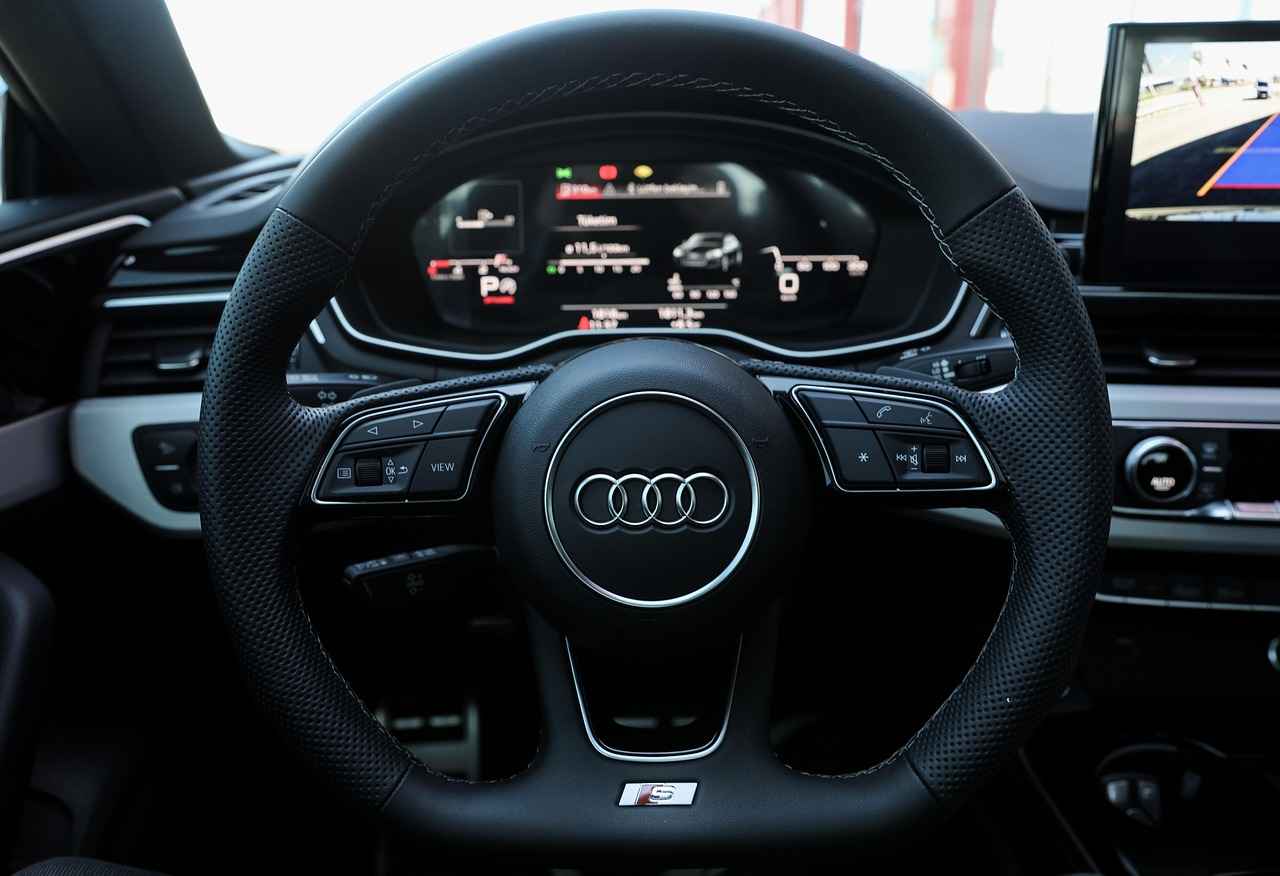
Types of Phone Holders for Car Cup Holders
When it comes to selecting the perfect phone holder for your car’s cup holder, understanding the various types available is crucial. Each style offers unique features that cater to different needs and preferences. Below, we explore the most common types of phone holders, which include adjustable, magnetic, and clamp styles.
- Adjustable Phone Holders: These holders are designed to accommodate various phone sizes and allow for optimal positioning. They often feature flexible arms or rotating bases, enabling users to adjust their device for the best viewing angle while driving. This adaptability makes adjustable holders popular among users who frequently switch between devices.
- Magnetic Phone Holders: Utilizing strong magnets, these holders securely attach to your phone, providing quick access and ease of use. They typically require either a magnetic case or an adhesive metal plate to be placed on the back of the phone. Magnetic holders are favored for their minimalist design and the convenience of one-handed operation.
- Clamp Phone Holders: Clamp holders utilize a gripping mechanism to securely hold your phone in place. They often feature adjustable arms that can accommodate different phone sizes. While they provide a secure grip, users should ensure that the clamp mechanism is sturdy enough to withstand sudden stops or sharp turns.
Each type of phone holder has its benefits and limitations, making it essential to consider your specific needs before making a purchase. For instance, if you prioritize ease of access, a magnetic holder might be the best choice, while those who prefer a secure fit may lean toward adjustable or clamp styles.
In conclusion, understanding the various types of phone holders can greatly enhance your driving experience by ensuring that your device is both accessible and secure. Choose wisely to find the perfect fit for your car and lifestyle.
Adjustable Phone Holders
have become a popular accessory for drivers seeking convenience and safety on the road. These holders are designed to provide flexibility in positioning your device, which is crucial for achieving optimal viewing angles while driving. With the ability to accommodate various phone sizes, adjustable holders cater to a wide range of users and preferences.
One of the primary advantages of adjustable phone holders is their versatility. They can easily adapt to different devices, whether you own a compact smartphone or a larger model. This adaptability ensures that users can maintain a clear line of sight to their navigation apps or music playlists without compromising safety.
Moreover, adjustable phone holders often feature 360-degree rotation, allowing you to switch between portrait and landscape modes effortlessly. This feature is particularly useful for navigation, as it enables you to choose the most comfortable angle for your viewing needs.
However, it is essential to consider the limitations of adjustable holders. While they offer flexibility, some models may not provide the most secure grip, especially during sudden stops or sharp turns. Therefore, it’s advisable to select a holder with a robust locking mechanism to ensure that your device remains stable and secure.
In addition to their flexibility, adjustable phone holders are often designed with user-friendly features. Many models allow for one-handed operation, making it easy to insert or remove your device without taking your eyes off the road. This convenience enhances overall safety, as drivers can maintain their focus while accessing their phones.
In conclusion, adjustable phone holders are an excellent choice for anyone looking to enhance their driving experience. With their ability to accommodate various phone sizes and provide optimal viewing angles, they offer a perfect blend of convenience and safety. When selecting an adjustable holder, consider factors such as grip stability and ease of use to find the perfect match for your needs.
Benefits of Adjustable Holders
When it comes to enhancing your driving experience, adjustable phone holders stand out as a top choice. These holders are designed with versatility in mind, allowing users to adapt them according to their specific needs. Here are some key benefits that make adjustable holders a preferred option:
- Compatibility with Various Devices: Adjustable holders can accommodate a wide range of phone sizes and models. This feature is particularly beneficial for families or individuals who frequently switch between different devices.
- Optimal Viewing Angles: Many adjustable holders allow users to tilt, rotate, or extend their devices, ensuring that the screen is always at an ideal angle for viewing. This is crucial for navigation and hands-free calls, as it minimizes distractions while driving.
- Enhanced User Comfort: By allowing for personalized positioning, adjustable holders can significantly improve comfort during long drives. Users can find the most ergonomic setup, reducing strain on the neck and eyes.
- Ease of Use: These holders typically feature simple mechanisms that enable quick adjustments. Whether you need to switch from landscape to portrait mode or adjust the height, you can do so effortlessly.
- Stability During Travel: While there may be concerns about grip during sudden stops, many adjustable holders are designed with anti-slip materials that enhance stability, ensuring that your device stays securely in place even on bumpy roads.
In conclusion, adjustable phone holders not only offer versatility but also enhance the overall user experience by providing comfort and accessibility. Whether you are navigating through city traffic or embarking on a long road trip, investing in a quality adjustable holder can significantly improve your driving experience.
Limitations of Adjustable Holders
While adjustable holders are popular for their versatility and adaptability, they come with certain limitations that can affect their overall performance in real-world driving scenarios. One significant concern is their ability to maintain a secure grip on your device, especially during unexpected maneuvers such as sudden stops or sharp turns. This can lead to potential hazards, including the risk of your phone slipping out of the holder or becoming dislodged, which can distract the driver and compromise safety.
Another limitation is the adjustability feature itself. Although it allows users to position their devices at various angles for optimal viewing, it can also create instability if not properly secured. In some cases, the mechanism that holds the phone may loosen over time, leading to a less reliable grip. This is particularly concerning for drivers who frequently navigate bumpy roads or uneven surfaces.
Additionally, adjustable holders may not be compatible with all phone cases. Some cases may add bulk or obstruct the holder’s mechanism, preventing a snug fit. Users must ensure that their device is properly seated in the holder to avoid any slipping or dropping during transit.
Lastly, the materials used in adjustable holders can vary widely. Some lower-quality options may be made from flimsy plastic that can wear down over time, further compromising the holder’s ability to securely grip the phone. Therefore, it is essential to invest in a quality adjustable holder that combines durability with functionality.
In conclusion, while adjustable holders offer flexibility and convenience, their limitations, particularly in terms of grip security and compatibility, should be carefully considered. By understanding these factors, users can make informed decisions when selecting a phone holder that ensures both safety and ease of use while driving.
Magnetic Phone Holders
have gained popularity in recent years due to their convenience and efficiency in securing mobile devices while driving. These holders utilize powerful magnets to keep your phone in place, allowing for quick access and easy adjustments. However, to ensure optimal functionality, it is essential to use a compatible phone case or attach an adhesive metal plate to your device.
One of the primary advantages of magnetic phone holders is their ease of use. Unlike traditional holders that may require complex adjustments or clamps, magnetic holders allow users to simply place their phone against the holder, where it will be effortlessly secured. This feature not only saves time but also enhances safety by minimizing distractions while driving.
However, it is important to note that compatibility is crucial when choosing a magnetic phone holder. Most holders require either a specific case designed for magnetic use or an adhesive metal plate that can be attached to your phone. This means that users should carefully check the product specifications to ensure that their device will fit securely.
Another consideration is the strength of the magnet. A strong magnet ensures that your phone remains in place, even during sudden stops or sharp turns. Therefore, it is advisable to look for holders with high-quality magnets that can withstand the rigors of daily driving.
In conclusion, offer a blend of convenience and functionality, making them an excellent choice for drivers seeking a reliable way to keep their devices accessible. By ensuring compatibility and selecting a holder with a robust magnet, users can enjoy a safer and more organized driving experience.
| Feature | Details |
|---|---|
| Ease of Use | Quick attachment and removal of phone |
| Compatibility | Requires specific cases or metal plates |
| Magnet Strength | High-quality magnets are essential for stability |
- Pros: Quick access, minimal distractions, easy to install.
- Cons: Requires compatible accessories, potential for weaker grip with low-quality magnets.
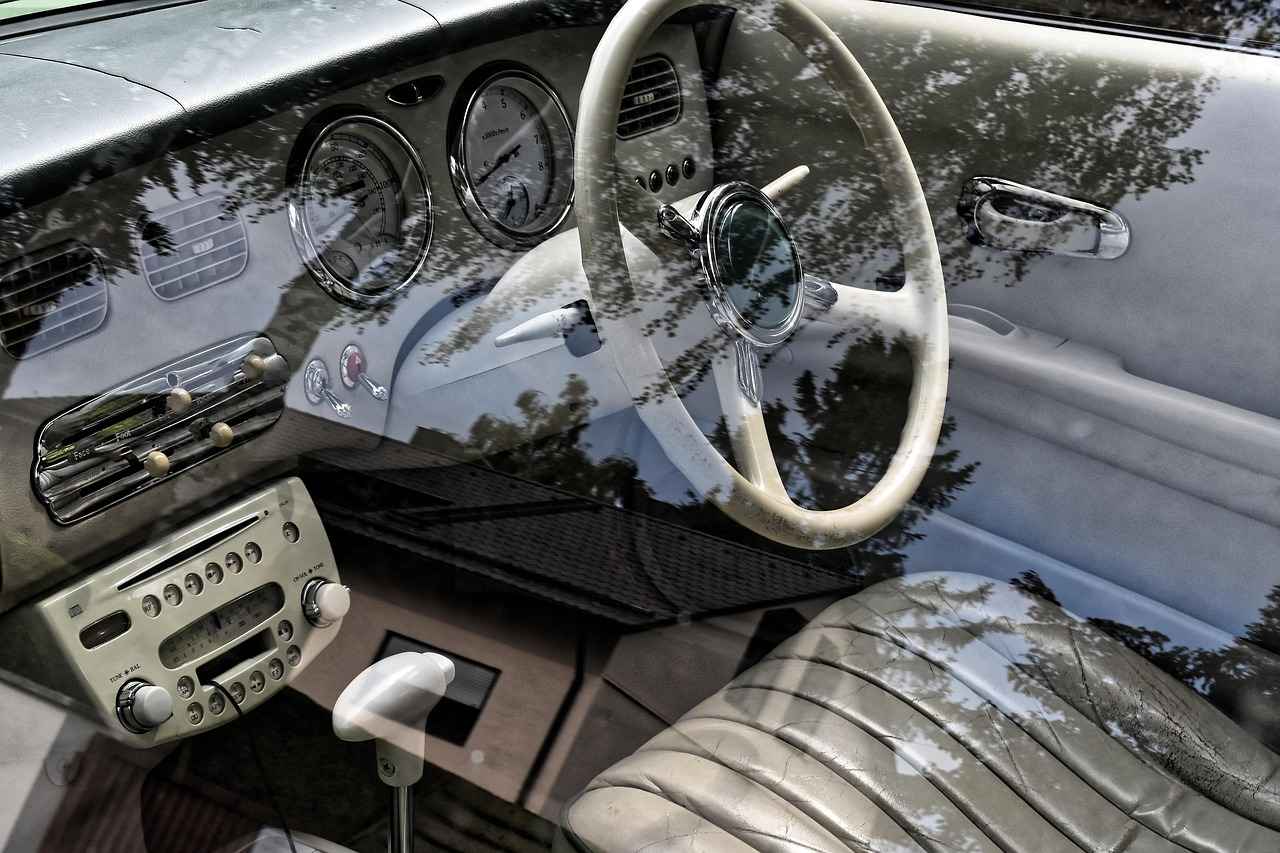
Choosing the Right Material for Durability
The choice of material for a phone holder is crucial in determining its durability and overall performance. Different materials offer unique advantages, catering to various user needs and preferences. In this section, we will explore the most common materials used in phone holders: plastic, rubber, and metal.
- Plastic Holders:
Plastic is one of the most popular materials for phone holders due to its lightweight nature and affordability. These holders are often designed to be flexible, allowing users to easily adjust them to fit different phone sizes. However, while plastic holders are convenient, they may not withstand heavy use or extreme conditions, leading to potential breakage over time.
- Rubber Holders:
Rubber phone holders are known for their grip and shock absorption. They provide a secure fit, minimizing the risk of your phone slipping out during sudden stops or sharp turns. Additionally, rubber is often resistant to wear and tear, making these holders a durable option. However, they may not offer the same level of stability as metal holders, especially in high-temperature environments.
- Metal Holders:
Metal phone holders are regarded for their stability and longevity. They are built to withstand heavy usage and can provide a more secure grip on your device compared to plastic or rubber options. Although metal holders may be more expensive, their durability often justifies the investment, especially for those who frequently travel or use their phones while driving. However, some users may find them heavier and less portable.
In conclusion, the choice of material for your phone holder should align with your specific needs and usage patterns. Consider factors such as durability, grip, and cost when selecting the right phone holder to ensure it meets your expectations and provides reliable performance over time.
Plastic Holders
Plastic phone holders are a popular choice among drivers due to their lightweight nature and affordability. However, while they offer convenience, there are some important considerations to keep in mind regarding their durability and performance.
One of the main advantages of plastic phone holders is their cost-effectiveness. They are typically less expensive than holders made from materials like metal or high-grade rubber, making them accessible to a wider range of consumers. This affordability allows users to easily replace them if needed, which can be a significant advantage for those who frequently switch devices or styles.
In addition to their budget-friendly price, plastic holders are lightweight, which makes them easy to transport and install. Many users appreciate the simplicity of setting up a plastic holder without the need for tools or complicated instructions. This ease of use is particularly beneficial for those who are always on the go.
However, despite these advantages, plastic holders often lack the longevity found in their metal counterparts. Over time, exposure to heat, sunlight, and general wear and tear can lead to cracks or breakage, which may compromise the holder’s ability to securely grip the phone. This can be particularly concerning during sudden stops or sharp turns, where a sturdy hold is essential for safety.
| Feature | Plastic Holders | Metal Holders |
|---|---|---|
| Weight | Lightweight | Heavier |
| Cost | Affordable | More Expensive |
| Durability | Less Durable | Highly Durable |
| Installation | Easy | Moderate |
In conclusion, while plastic phone holders offer several benefits such as affordability and lightweight design, it is crucial to consider their potential limitations in terms of durability. For users who prioritize long-term use and stability, investing in a metal holder may be a more suitable option. Ultimately, the choice depends on individual needs and driving habits.
Metal Holders
When it comes to selecting a phone holder for your car, stand out for their superior durability and stability. Unlike plastic or rubber options, metal holders are designed to withstand the rigors of daily use, making them an excellent choice for those who frequently travel.
One of the key advantages of metal phone holders is their robust construction. They are less likely to warp or break under pressure, which is particularly beneficial during sudden stops or sharp turns. This feature enhances the overall safety of your device, ensuring it remains securely in place while you drive.
Moreover, metal holders often feature a sleek and modern design, adding a touch of elegance to your car’s interior. They can blend seamlessly with various car aesthetics, making them not only functional but also visually appealing.
However, it’s important to consider that metal holders may come at a higher price point compared to their plastic counterparts. While the initial investment might be more significant, the long-term benefits often justify the cost. Investing in a metal holder can save you money in the long run, as you won’t need to replace it frequently due to wear and tear.
In terms of compatibility, many metal holders are designed to accommodate a wide range of phone sizes, ensuring a snug fit for your device. This versatility makes them suitable for multiple users within a household, as they can easily adjust to different phones.
In conclusion, if you’re looking for a reliable and stylish option, a metal phone holder is a worthy investment. It offers enhanced durability, stability, and aesthetic appeal, making it an ideal choice for any car owner.

Compatibility with Different Phone Sizes
When it comes to selecting a phone holder for your vehicle, compatibility with your device’s size and model is crucial. Ensuring that the holder fits your phone properly not only guarantees a secure fit but also enhances the functionality of the holder during use. Here are some important considerations to keep in mind:
- Device Size: Measure your phone’s dimensions, including its width and height, to choose a holder that can accommodate it comfortably. A holder that is too tight may damage your phone, while one that is too loose may not provide adequate support.
- Model Specificity: Some holders are designed specifically for certain models, offering a custom fit that enhances stability. If you own a popular smartphone, you may find holders that are specifically tailored to its design.
- Universal Holders: These are versatile options that can fit a range of devices. While they offer flexibility, be sure to check the specifications to ensure they can accommodate your phone’s size.
- Adjustability: Look for holders that feature adjustable arms or grips. This feature allows you to modify the holder to fit different devices, making it a practical choice for families with multiple phones.
In addition to size, consider the thickness of your phone case. Some holders may not fit properly if your phone is encased in a thick protective cover. Therefore, always check the holder’s compatibility with cases as well.
Ultimately, selecting a phone holder that is compatible with your device ensures not only safety but also a seamless experience while driving. By taking the time to evaluate your options, you can find a holder that meets your needs and enhances your driving experience.
Universal Phone Holders
are a popular choice for many drivers, especially in households with multiple devices. These holders are specifically designed to accommodate a wide range of phone sizes, making them a versatile option for families or individuals who frequently switch between different smartphones.
One of the primary advantages of universal phone holders is their adaptability. Unlike custom-fit holders that only accommodate specific models, universal holders can easily adjust to fit various devices, from compact smartphones to larger models. This feature is particularly beneficial for families where each member may have a different device. It eliminates the need to purchase multiple holders, saving both time and money.
Moreover, universal holders often come with adjustable arms or brackets that securely grip the device, ensuring it stays in place even on bumpy roads. This secure grip is essential for maintaining safety while driving, as it allows for hands-free navigation and communication. By keeping your phone within reach, you can easily access navigation apps or take calls without taking your eyes off the road.
When selecting a universal phone holder, consider the following factors:
- Size Compatibility: Ensure the holder can accommodate your phone’s dimensions.
- Mounting Style: Choose between cup holder, dashboard, or vent mounts based on your preference.
- Material Quality: Look for durable materials that can withstand daily use.
In conclusion, universal phone holders offer a practical solution for those looking to secure their devices while driving. Their ability to fit various phone sizes makes them an ideal choice for multi-device households, promoting safety and convenience on the road.
Custom Fit Holders
are specifically designed to accommodate individual phone models, ensuring a perfect fit that enhances both stability and safety during use. Unlike generic holders, these tailored solutions provide a snug grip, significantly reducing the risk of your device slipping or falling while driving.
When selecting a custom fit holder, it is essential to consider the precise dimensions and design features of your phone. This attention to detail means that the holder will not only hold the device securely but also allow for easy access to buttons and ports. For instance, a well-designed custom fit holder will enable you to charge your phone without having to remove it from the holder, which is a vital convenience for long journeys.
Moreover, the snug fit of custom holders minimizes vibrations and movement, which can be particularly beneficial during bumpy rides or sharp turns. This stability is crucial for maintaining focus on the road, as it prevents distractions that could arise from constantly adjusting your phone. Additionally, many custom fit holders are crafted from high-quality materials, ensuring durability and longevity even with regular use.
Another advantage of custom fit holders is their aesthetic appeal. These holders often feature designs that complement the sleek look of modern smartphones, allowing you to maintain a stylish interior in your vehicle. Available in various colors and finishes, they can be chosen to match your car’s décor or personal style.
In conclusion, investing in a custom fit holder is a wise decision for anyone looking to enhance their driving experience. With benefits ranging from improved safety to aesthetic appeal, these holders provide an unrivaled solution for keeping your phone secure and accessible while on the road.

Installation and Ease of Use
When it comes to selecting a phone holder for your car, are critical factors that can significantly impact your driving experience. A holder that is simple to install and allows for quick access can enhance both safety and convenience on the road.
Why Easy Installation Matters
Many drivers prefer phone holders that require minimal setup. Holders that can be installed without tools or complicated instructions save time and reduce frustration. Tool-free installation is a desirable feature, as it allows users to set up their holders quickly, ensuring they can focus on driving rather than fiddling with equipment.
One-Handed Operation: A Key Feature
Another important aspect is the ability to operate the phone holder with one hand. This feature is especially beneficial for drivers who need to quickly access their devices without taking their eyes off the road. Holders designed for one-handed operation allow for easy adjustments and retrieval of the phone, promoting safer driving practices.
Types of Installation Mechanisms
- Clamp Mechanisms: These holders use a clamping system to securely grip the phone, making it easy to insert and remove with one hand.
- Magnetic Holders: Utilizing magnets, these holders provide a quick and effortless way to attach and detach your phone, provided you have the necessary metal plate or compatible case.
- Adjustable Stands: These allow for customizable positioning, making it easier to find the perfect viewing angle while driving.
Conclusion
In summary, when choosing a phone holder for your car, consider options that offer easy installation and one-handed operation. These features not only enhance convenience but also contribute to a safer driving experience. By prioritizing these aspects, you can ensure that your phone holder meets your needs effectively.
Simple Installation Methods
When it comes to choosing a phone holder for your car, one of the most appealing features is tool-free installation. This innovative design allows users to set up their phone holders quickly and efficiently, eliminating the frustration often associated with complicated assembly instructions or the need for additional tools. Here are some key points to consider:
- Quick Setup: Most modern phone holders are designed with user convenience in mind. With simple clip mechanisms or spring-loaded arms, you can easily secure your device in place without any hassle.
- No Tools Required: Forget about searching for a screwdriver or other tools. These holders can be installed directly into your car’s cup holder or dashboard mount, making them accessible for everyone.
- Intuitive Design: Many phone holders feature an ergonomic design that allows for a straightforward setup process. Users can simply follow a few basic steps, often illustrated with clear diagrams, to achieve a secure fit.
- Adjustable Features: Some holders come with adjustable bases or arms that can be modified to fit different phone sizes. This flexibility ensures that your phone is held securely no matter the device.
In addition to ease of installation, many holders also prioritize one-handed operation. This feature is particularly beneficial for drivers, allowing them to access their phones effortlessly while keeping their focus on the road. The combination of tool-free installation and user-friendly design makes these phone holders an excellent choice for any driver looking to enhance their driving experience.
Overall, selecting a phone holder with simple installation methods not only saves time but also ensures that you can stay connected safely while on the go.
One-Handed Operation
is a crucial feature in modern phone holders designed for vehicles. These holders allow drivers to easily access their phones without diverting their attention from the road. By enabling quick access to navigation apps, music controls, and hands-free calls, they significantly enhance driving safety.
In today’s fast-paced world, multitasking while driving can be dangerous. However, one-handed operation phone holders offer a solution that balances convenience and safety. Here are some key benefits:
- Ease of Use: With a holder designed for one-handed operation, drivers can securely place or retrieve their phones with minimal effort, promoting safer driving habits.
- Focus on the Road: These holders allow drivers to keep their eyes on the road while accessing essential functions, reducing the likelihood of accidents caused by distracted driving.
- Quick Adjustments: Whether changing a song or answering a call, one-handed operation makes it easier to make quick adjustments without fumbling with the device.
Moreover, many of these holders are adjustable, ensuring that they can accommodate various phone sizes and models. This versatility means that whether you use a larger smartphone or a compact model, you can find a holder that fits perfectly in your vehicle’s cup holder.
When selecting a phone holder, consider features such as stability and durability. A well-designed holder will grip your phone securely, even during sudden stops or sharp turns, ensuring that your device remains in place. Additionally, look for models that offer quick-release mechanisms, allowing for easy removal of your phone when needed.
In conclusion, investing in a phone holder that supports one-handed operation is a wise choice for any driver. It not only enhances safety by keeping your focus on the road but also adds convenience to your driving experience. With numerous options available, finding the right one can lead to a more enjoyable and secure journey.
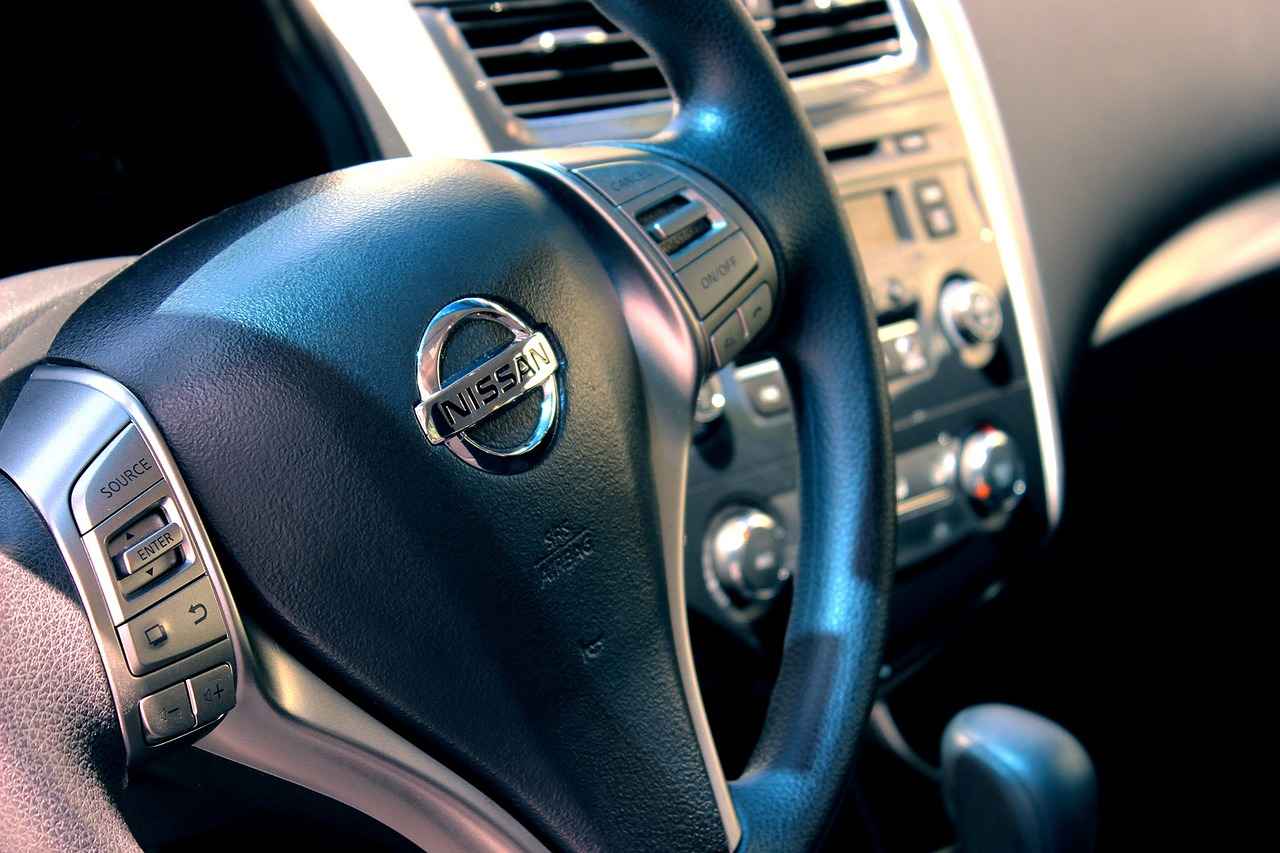
Price Range and Budget Considerations
When it comes to choosing a phone holder for your car, understanding the price range is essential. Phone holders are available in a wide array of prices, from budget options to premium models. Knowing your budget can significantly influence your decision, ensuring you find a quality holder that meets your needs without overspending.
| Price Range | Features | Best For |
|---|---|---|
| Under $20 | Basic functionality, lightweight materials | Casual users, occasional drivers |
| $20 – $50 | Enhanced durability, better grip, adjustable features | Regular drivers, families with multiple devices |
| Over $50 | Premium materials, advanced features, multi-device compatibility | Frequent travelers, tech enthusiasts |
Affordable Options
- Many budget-friendly phone holders are available that provide decent functionality and quality.
- These options are perfect for casual users who do not require extensive features.
Premium Holders
- Investing in a premium phone holder can offer additional features such as enhanced stability and durability.
- These holders are ideal for frequent travelers or heavy users who prioritize quality and safety.
Ultimately, the right choice depends on your specific needs and how often you use your phone while driving. By assessing your budget and understanding the features available at different price points, you can make an informed decision that enhances your driving experience.
Affordable Options
When it comes to finding a phone holder for your car, there are numerous budget-friendly options that provide excellent functionality and quality. These holders are particularly suitable for casual users who want to enhance their driving experience without breaking the bank.
Many of these affordable phone holders are designed to fit securely in your car’s cup holder, ensuring that your device is easily accessible while keeping your hands free for driving. Here are some popular types of affordable phone holders:
- Clamp-style Holders: These holders use a simple clamp mechanism to grip your phone securely. They are often adjustable, making them compatible with various phone sizes.
- Magnetic Holders: Utilizing strong magnets, these holders allow for quick attachment and removal of your device. They are generally easy to use and can be quite affordable.
- Adjustable Holders: These holders can be adjusted for optimal viewing angles, providing flexibility for different drivers and passengers.
One of the key advantages of budget-friendly phone holders is their accessibility. Many options are available for under $20, making it easy for users to find a holder that fits their needs without overspending. Additionally, many of these products come with positive customer reviews, highlighting their reliability and effectiveness.
It’s important to consider the material and design of the holder as well. While some budget options may be made from plastic, others might feature more durable materials like rubber or a combination of both, ensuring longevity and stability during use.
In conclusion, there are many affordable phone holders available that do not compromise on quality or functionality. By selecting a holder that fits your specific needs, you can enjoy a safer and more convenient driving experience.
Premium Holders
are designed for those who seek a blend of functionality, style, and durability in their phone accessories. Investing in a premium phone holder can significantly enhance your experience, especially for frequent travelers or heavy users who rely on their devices while on the go.
One of the primary advantages of premium holders is their robust construction. Unlike standard models, these holders are often made from high-quality materials such as aluminum or reinforced plastics, ensuring they can withstand the rigors of daily use. This durability means you won’t have to worry about your holder breaking or losing its grip during sudden stops or sharp turns.
Additionally, premium holders typically feature advanced design elements that cater to user convenience. For instance, many come with adjustable angles, allowing you to position your phone for optimal visibility. This is particularly beneficial for navigation purposes, as it minimizes distractions while driving. Some premium models even include wireless charging capabilities, eliminating the need for messy cables and ensuring your device stays powered throughout your journey.
Another critical aspect is the ease of installation. Premium phone holders often come with user-friendly mounting systems that allow for quick setup without the need for tools. This feature is essential for those who switch vehicles frequently or prefer to adjust their holder’s position regularly.
Furthermore, investing in a premium holder can also enhance your phone’s safety. Many high-end models incorporate features like anti-slip grips or magnetic attachments, ensuring your device remains securely in place, even on bumpy roads.
In conclusion, while premium phone holders may come with a higher price tag, the added benefits of durability, functionality, and safety make them a worthwhile investment for anyone who relies heavily on their smartphone during travel. Choosing the right premium holder can lead to a more convenient and enjoyable driving experience.

Customer Reviews and Recommendations
When it comes to selecting the perfect phone holder for your car, customer reviews play a crucial role in guiding your decision. These reviews offer firsthand insights into the performance and reliability of various phone holders, helping you navigate through the multitude of options available in the market.
Understanding the Value of Customer Feedback
Reading through customer feedback allows potential buyers to gauge the real-world effectiveness of each product. Users often share their experiences regarding the durability, ease of installation, and overall functionality of the phone holders they have purchased. This information can be invaluable in making an informed choice.
- Performance Insights: Customers frequently discuss how well a phone holder performs during everyday use, including any challenges faced while driving.
- Durability Reports: Many reviews highlight the longevity of the product, offering insights into whether the holder can withstand regular use and various driving conditions.
- Installation Ease: Feedback often includes comments on the installation process, helping you identify holders that can be set up quickly and without hassle.
Expert Recommendations
In addition to customer reviews, expert recommendations can provide a curated list of top-rated phone holders. These experts often conduct extensive testing to determine which products stand out in terms of quality and user satisfaction. Their insights can help you narrow down your options and make a confident purchase.
For instance, some experts suggest looking for holders that offer one-handed operation features, ensuring that you can easily access your phone without compromising safety while driving.
Conclusion
In conclusion, leveraging customer reviews and expert recommendations is essential in your search for the right phone holder. By considering the experiences of others, you can effectively filter through the myriad of choices and find a holder that meets your needs for both convenience and safety.
Importance of Reviews
Importance of Customer Reviews in Product Selection
When it comes to making informed purchasing decisions, customer feedback plays a crucial role. Reviews from actual users provide insights into the real-world performance of products, allowing potential buyers to weigh the pros and cons before committing to a purchase. This is especially important in today’s market, where options are abundant and choices can be overwhelming.
- Real Experiences: Customer reviews are based on personal experiences, offering a glimpse into how a product performs in everyday situations. This firsthand knowledge can be invaluable for potential buyers.
- Identifying Strengths and Weaknesses: Through reviews, consumers can identify common strengths and weaknesses of products. For instance, a phone holder might be praised for its ease of installation but criticized for its durability.
- Comparative Insights: Reviews often include comparisons with similar products, helping consumers understand how a particular item stacks up against its competitors.
- Genuine Feedback: Unlike marketing materials, customer reviews provide unfiltered feedback. This authenticity can help buyers trust the information they are receiving.
Moreover, reviews can highlight specific use cases that may not be immediately apparent. For example, a phone holder that works well in a standard car cup holder might not be suitable for larger devices or unique vehicle designs. Understanding these nuances can save buyers from making costly mistakes.
In conclusion, leveraging customer reviews is an essential strategy for anyone looking to make informed decisions. By analyzing feedback, potential buyers can gain valuable insights that lead to more satisfying purchases.
Expert Recommendations
When it comes to selecting the perfect phone holder for your car, can be invaluable. These insights often stem from extensive testing and user feedback, leading to a curated list of top-rated products that stand out in the market. By relying on expert reviews, consumers can navigate the overwhelming variety of options available and make informed choices that suit their specific needs.
One of the primary benefits of consulting expert reviews is the focus on quality and performance. Experts typically evaluate phone holders based on various criteria, including durability, ease of installation, and compatibility with different phone models. This thorough assessment helps consumers identify products that not only meet their requirements but also offer longevity and reliability on the road.
Additionally, expert recommendations often highlight innovative features that may not be immediately apparent to the average consumer. For instance, some holders may include adjustable arms for enhanced visibility or magnetic mounts for quick access. These features can significantly enhance the overall driving experience, making it safer and more convenient.
Furthermore, expert reviews often include comparisons between similar products, allowing consumers to see the pros and cons of each option side by side. This comparative analysis is particularly useful for those who may be unsure about what specific features they need or what price range to consider. By presenting the information in a clear and concise manner, experts help demystify the selection process.
In conclusion, leveraging expert recommendations can greatly assist consumers in their quest for the best phone holder. By focusing on quality, innovative features, and thorough comparisons, these insights provide a solid foundation for making an informed purchase. Whether you are a casual driver or someone who spends significant time on the road, investing in a well-reviewed phone holder can enhance your driving experience.
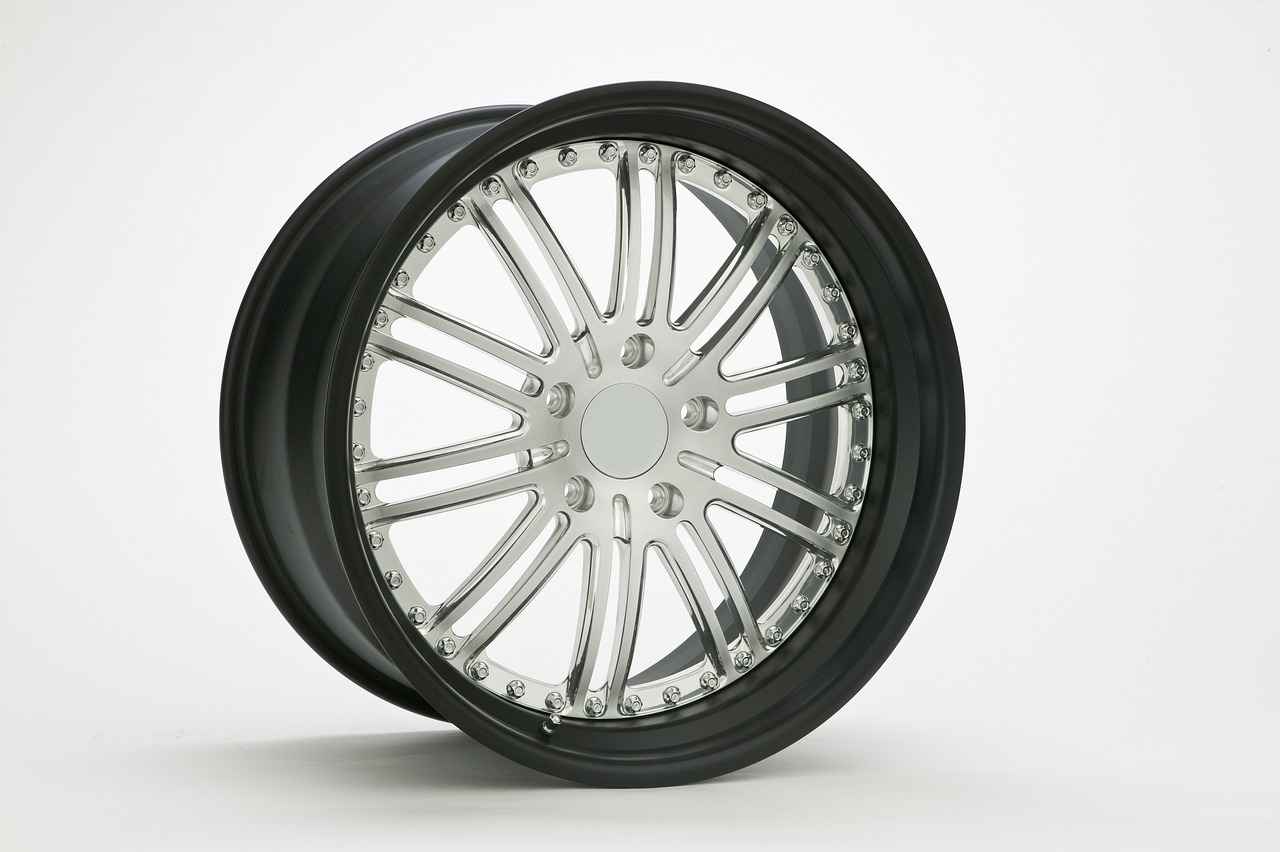
Conclusion: Finding Your Ideal Phone Holder
Choosing the right phone holder for your car cup is essential for a safe and convenient driving experience. With numerous options available, it is important to consider several factors to ensure you make the best choice.
When selecting a phone holder, you should first assess the type of holder that best meets your needs. There are various styles available, including adjustable, magnetic, and clamp holders, each offering unique benefits. For instance, adjustable holders allow for flexibility in positioning your device, ensuring optimal viewing angles while driving.
Material is another critical factor to consider. Phone holders are commonly made from plastic, rubber, or metal. Plastic holders are often lightweight and affordable but may lack durability. In contrast, metal holders provide enhanced stability and longevity, making them ideal for frequent use, albeit at a higher price point.
Compatibility with your device is crucial. Ensure the holder you choose can accommodate your phone’s size and model. Universal holders are versatile and can fit a variety of devices, while custom fit holders offer a snug fit for specific models, enhancing security during travel.
Installation and ease of use are also important considerations. Look for holders that offer simple installation methods, requiring no tools and enabling quick setup. Additionally, options that allow for one-handed operation can enhance safety by enabling easy access to your phone without diverting attention from the road.
Finally, consider your budget. Phone holders come in various price ranges, from affordable options that provide decent functionality to premium holders that offer advanced features and durability. Understanding your budget can help you find a quality holder that meets your needs without overspending.
In conclusion, choosing the right phone holder for your car cup involves careful consideration of type, material, compatibility, installation ease, and budget. By taking these factors into account, you can ensure a safe and convenient driving experience.
Frequently Asked Questions
- What are the benefits of using a phone holder in my car?
Using a phone holder enhances your driving safety by keeping your phone secure and easily accessible. It allows for hands-free navigation and communication, so you can stay focused on the road without distractions.
- How do I choose the right type of phone holder?
Consider your preferences and needs! Adjustable holders offer flexibility, while magnetic ones provide quick access. Think about your phone size and compatibility, as well as how you plan to use it while driving.
- Are all phone holders compatible with every phone size?
No, not all holders are universal. Some are specifically designed for certain models, while others are adjustable to fit a range of sizes. Always check compatibility to ensure a snug fit!
- How easy is it to install a phone holder?
Most phone holders are designed for simple, tool-free installation. Look for options that allow for quick setup and one-handed operation, making it easy to use while driving.
- What should I consider regarding the price of phone holders?
Phone holders come in various price ranges. If you’re a casual user, there are affordable options that offer good quality. However, investing in a premium holder can provide added durability and features, especially for frequent travelers.
- Why are customer reviews important when choosing a phone holder?
Customer feedback provides real-world insights into product performance and reliability. Reading reviews helps you assess the pros and cons, guiding you to make a more informed choice.










